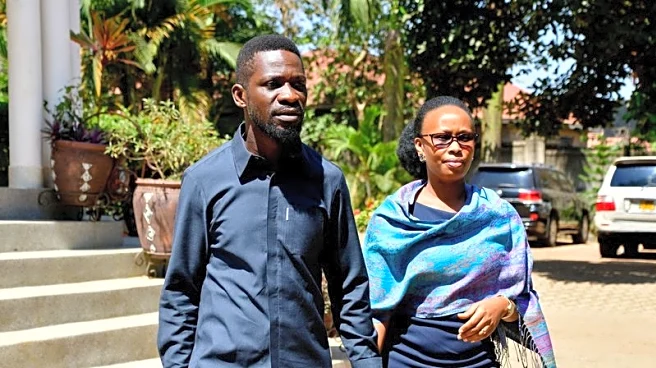Rapid Read • 8 min read
Dr. Susan Monarez has been confirmed as the new director of the U.S. Centers for Disease Control and Prevention (CDC) following a 52-47 Senate vote. Monarez, a microbiologist and infectious disease expert, previously served as the CDC's deputy director. Her confirmation comes after President Trump withdrew his initial nominee, Dave Weldon, due to concerns over Weldon's vaccine skepticism. This marks the first time the CDC director position required Senate confirmation. Monarez has expressed a commitment to advancing the CDC's mission to prevent disease and respond to health threats, distancing herself from some Trump administration policies, such as mass layoffs and program eliminations.
AD
Monarez's appointment is significant as it comes at a time when the CDC faces numerous challenges, including budget cuts and personnel changes under the Trump administration. Her leadership is expected to influence the agency's approach to public health issues, including vaccination policies and health equity. The confirmation process highlighted tensions between Monarez and Health and Human Services Secretary Robert F. Kennedy Jr., particularly regarding vaccine safety and public health program priorities. Monarez's ability to navigate these challenges will be crucial for maintaining the CDC's role in protecting public health.
Monarez is expected to focus on restoring the integrity of the CDC's Advisory Committee on Immunization Practices, which recently saw significant changes in its membership. Her leadership will likely involve advocating for the CDC's resources and capabilities to address pandemics and chronic diseases. The public and political stakeholders will be watching closely to see how Monarez balances scientific integrity with political pressures, particularly in areas like vaccination and public health funding.
Monarez's confirmation could signal a shift in the CDC's approach to public health, emphasizing science-based decision-making and transparency. Her stance on controversial issues like vaccination and water fluoridation may lead to policy changes that could impact public health strategies nationwide. The broader implications of her leadership will depend on her ability to effectively communicate and implement policies that prioritize health equity and scientific integrity.
AD
More Stories You Might Enjoy











